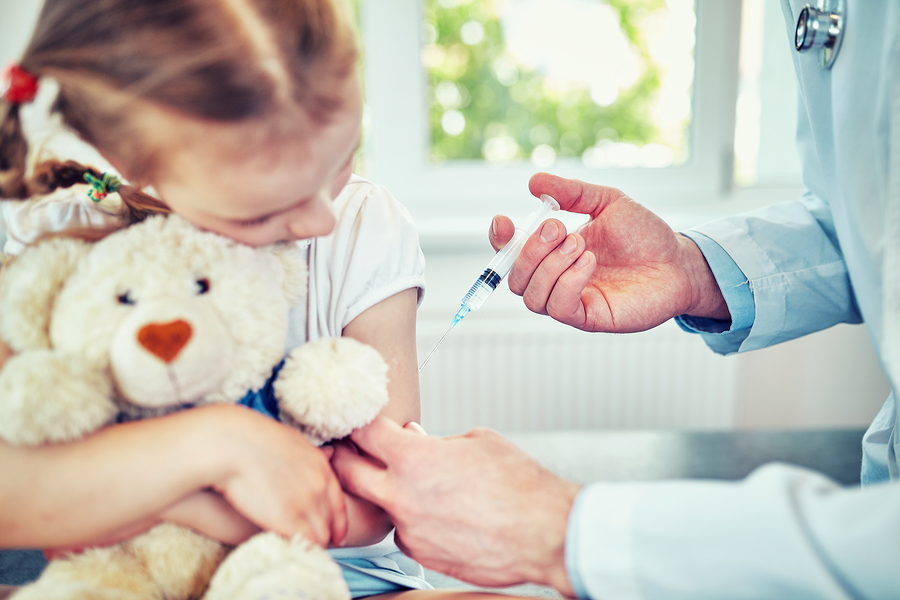Can You Sue Anti-Vaccination Parents?
 Michael Babboni
Personal Injury
It’s surprising that this is actually a contentious point in 21st century America, but over the years, that has been a small—but dramatically effective movement—that rejects the health and safety of vaccinations for the general population to decrease the perceived risk of autism. According to one medical report that was eventually found to have fabricated results, in addition to the authors having financial conflicts of interest, there was an association discovered between the development of autism and children receiving vaccinations for mumps, rubella, and rubella.
Michael Babboni
Personal Injury
It’s surprising that this is actually a contentious point in 21st century America, but over the years, that has been a small—but dramatically effective movement—that rejects the health and safety of vaccinations for the general population to decrease the perceived risk of autism. According to one medical report that was eventually found to have fabricated results, in addition to the authors having financial conflicts of interest, there was an association discovered between the development of autism and children receiving vaccinations for mumps, rubella, and rubella.Despite the report eventually being invalidated and the authors even losing their medical license, many Ameri-cans cling to the original assertion. They insist vaccines can cause autism, and thus refuse to have their children inoculated to protect them—and others—against a battery of potentially fatal childhood diseases.
So this brings up an interesting question. A disease is obviously a form of personal injury. And if someone refuses to vaccinate their child, that’s willfully ignoring a significant risk. So if a child contracts an easily preventable disease, and then spreads that disease to other children is there any legal responsibility for the parents that decided not to vaccinate?
In other words, can an anti-vaccination parent be held legally responsible if that decision results in an epidemic?
Willful Negligence
In a typical case of personal injury, the reason that a parent would sue for the injury of a child is due to the carelessness, recklessness or dereliction of legal duty that someone else displayed. A driver, for instance, has a legal obligation to pay attention to the road, so if he or she is texting while driving, and hit a child crossing the street due to not looking at the road, this is a clear case of a car accident with personal injury—or death—to a child through negligence. On the other hand, there is premises liability, which is injury through negligence of some aspect of the environment. If a child goes on an amusement park attraction that hasn’t been properly maintained and something goes wrong—such as the passenger car of a rollercoaster derailing—that is also a case of negligence.
Thus far, the boundaries of a family refusing to vaccinate a child—and the resultant infections—haven’t been tested in a court of law. However, the idea of vulnerable children being exposed to an illness has already occurred several times over the years, around the world.
Europe & America
In the year 2000, an unvaccinated child with measles was brought into a German children’s clinic. There were three infants present who were too young to be vaccinated. Two of those children came down with measles, suffered complications as a result and died.
More recently, in December of 2014, America experienced its biggest spike of measles—a disease officially deemed no longer a native threat in 2000—when someone with measles went to Disneyland in Anaheim, California. Over 50 people, mostly unvaccinated, were infected with measles, some of them children, some adults.
The Legal Conditions
Under ordinary conditions, a child receives two doses of vaccination against mumps, measles, and rubella. One at one year of age, and a second, final dosage at the age of 5-6. It is not illegal to decide not to vaccinate a child. In most cases, simply stating on a form that personal/religious preferences preclude a child from vaccinations is enough to get a legal exemption. However, just because something is legal, that does not mean there are no legal ramifications for misuse.
For example, it is legal to own a gun in Florida, but leaving a loaded gun sitting on a kitchen table, and creating a situation where a child discharges that gun and causes injury or death means the property owner can now be sued, even if owning the gun itself was legal. The question now becomes whether or not this same legal interpretation about maintaining safe behavior can be carried over to disease transmission through children. We already know that someone getting sick through food poisoning, asbestos, and even black mold can sue a property owner for premises liability. Does the same apply to sick, unvaccinated children?
No Precedent
So far, no one has actually tried to pursue such a case in court, so we have yet to see to see any concrete legal judgments. However, one thing is clear; intent matters. If, for example, someone with a child that was infected with measles, knowingly took that child to the new-born ward of a hospital, deliberately infecting the infants there, it’s unlikely that the vaccination exemption legal protection would extend to deliberate disease exposure.
But it’s just one more example of the complexities of how personal injury can work. Which is why if you have any questions about it, you should take your concerns to a professional, experienced, legal expert like a personal injury lawyer.
